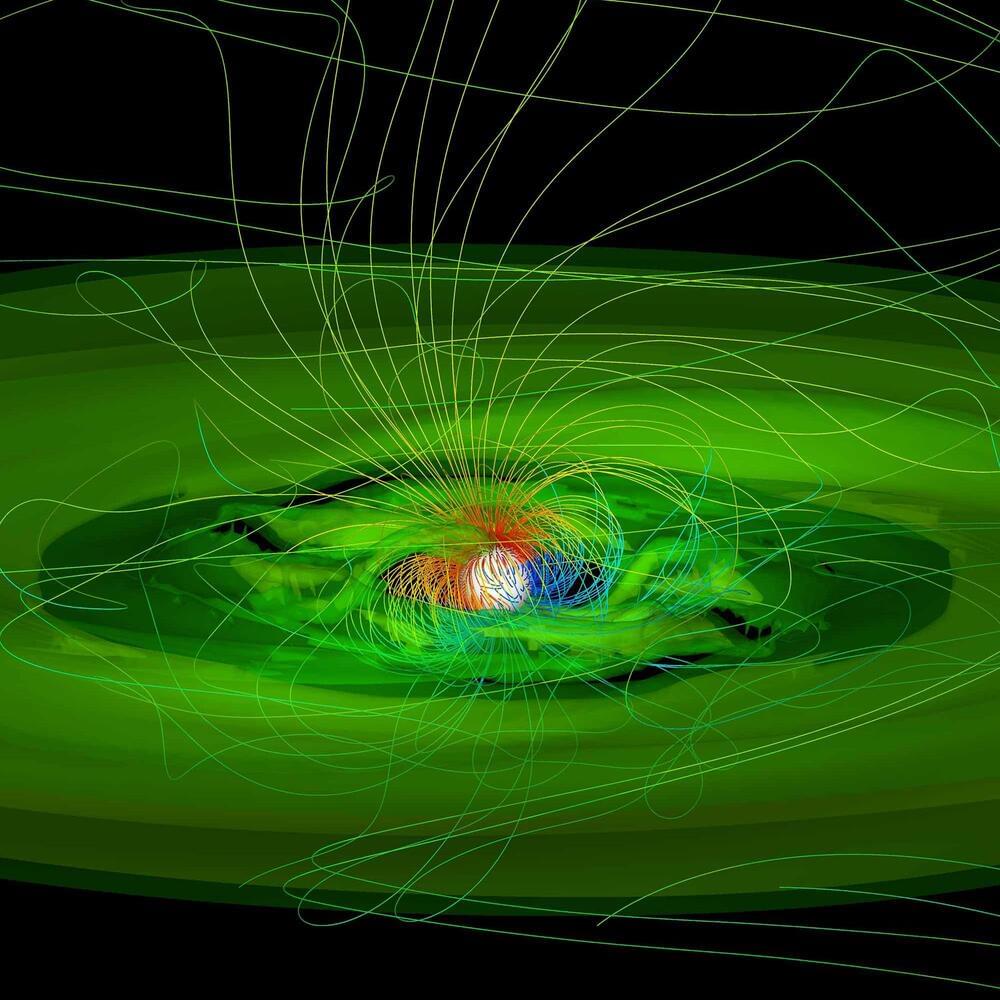Astronomers have discovered a strangely shaped spot on the surface of a baby star 450 million light-years away, revealing new insights into how our solar system formed.
The familiar star at the center of our solar system has had billions of years to mature and ultimately provide life-giving energy to us here on Earth. But a very long time ago, our sun was just a growing baby star. What did the sun look like when it was so young? That’s long been a mystery that, if solved, could teach us about the formation of our solar system—so-named because sol is the Latin word for sun—and other stellar systems made up of planets and cosmic objects orbiting stars.
“We’ve detected thousands of planets in other stellar systems in our galaxy, but where did all of these planets come from? Where did Earth come from? That’s what really drives me,” says Catherine Espaillat, lead author on the paper and a Boston University College of Arts & Sciences associate professor of astronomy.
